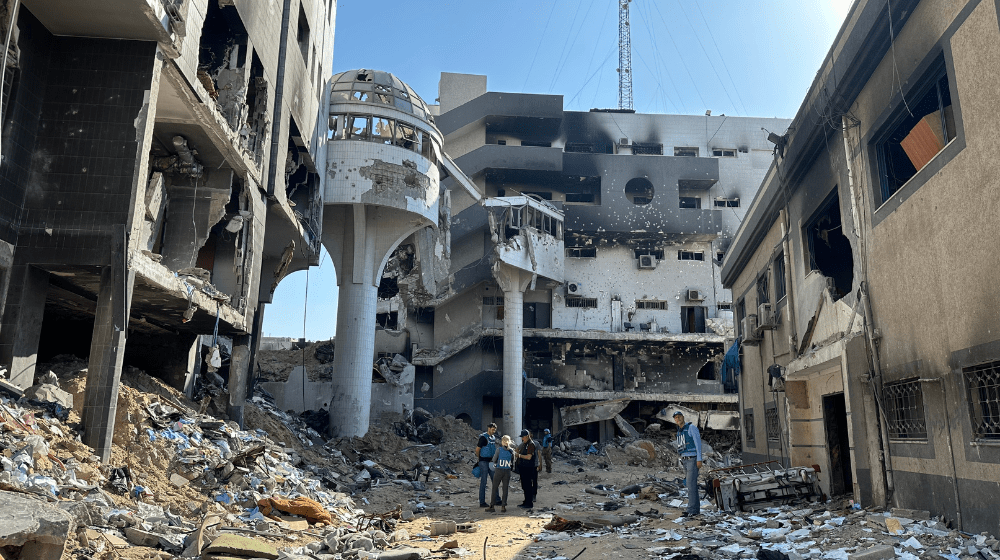UNITED NATIONS, New York – There were more than 1,500 attacks on health facilities last year. More than 280 humanitarians and at least 750 health workers and patients were killed. These numbers were racked up not on battlefields, but in hospitals, in homes, in vehicles delivering vital medical care, in spaces designed to be safe.
More health workers and patients were killed or injured in 2023 than any previous year – a grim record the world is on track to beat in 2024. Humanitarian aid workers are also facing unprecedented violence, with 172 killed so far this year. From Gaza to Myanmar, from Haiti to Ukraine, front-line workers and the people they are trying to serve are being bombed, shot, kidnapped, tortured, arrested – all while trying to do their jobs.
This rising tide of violence has largely been met with impunity and inaction. Below, we explore five reasons the world must urgently safeguard health facilities, their patients, and all those working for them.
2. Targeting health and humanitarian workers harms the most vulnerable – like pregnant women
3. Survivors of sexual violence have nowhere to turn
4. Failure to act means this violence could become normalized
A call to action
In 2023, UNFPA ensured sexual and reproductive health services for some 14 million women, girls and young people in crisis settings, among whom 1.4 million women were supported to give birth safely and millions sought help at over 1,000 facilities offering gender-based violence protection.
Without the infrastructure and staff to safely run these programmes, women and girls already struggling trying to survive amid violence and upheaval would be left with barely any assistance to face pregnancy complications, deal with the brutal aftermath of rape and navigate the horrors of forced marriage, endangering their lives yet further.
In a year scarred by ruthless conflicts, the world’s crises are so protracted they are at risk of being forgotten. Places where the sick, wounded and sheltering should be healing have been transformed into targets. With little accountability for those committing these crimes, this World Humanitarian Day comes with a warning for leaders to step up – and act for humanity.


